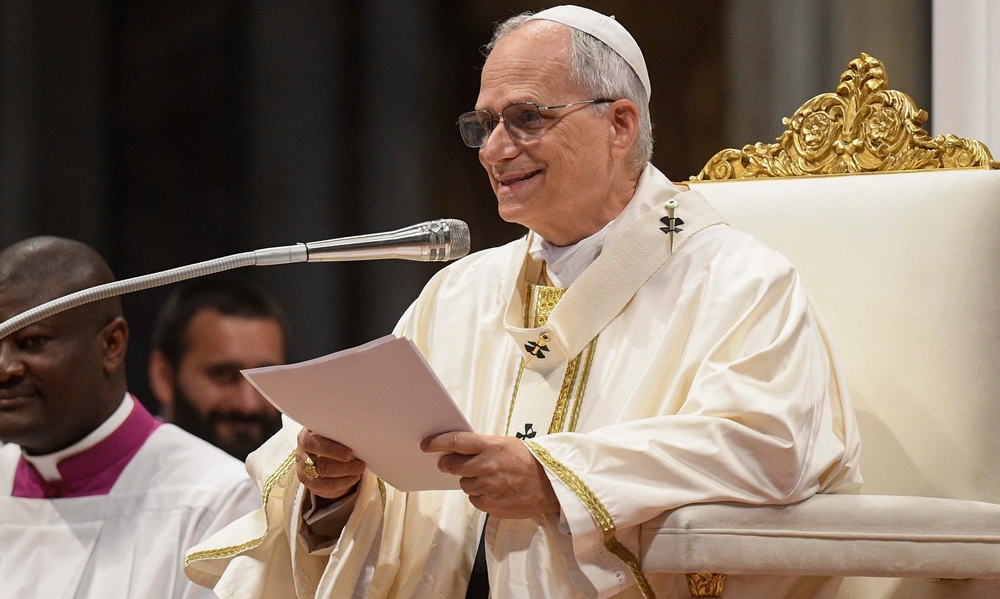Pope Leo XIV closes the Jubilee of Sport: “Sport, a precious means for training in human virtues”

Sport reflects the beauty of God. It’s a powerful message delivered by Pope Leo XIV during the Eucharistic celebration on the Solemnity of the Most Holy Trinity, marking the conclusion of the Jubilee of Sport. Present in St Peter’s Basilica were all the branches that make up the world of CONI: from National Sports Federations to Associated Sports Disciplines, from Sports Promotion Bodies to Meritorious Associations. Also in attendance were the President of the IOC, Thomas Bach, seated near the Minister for Sport and Youth, Andrea Abodi, alongside many champions, such as former Ferrari driver Felipe Massa, Olympic judo champion Pino Maddaloni, former footballer and current Mayor of Verona Damiano Tommasi, Paralympic champion Giulia Ghiretti, and NBA star Gordon Hayward – all of whom had taken part the previous day in the roundtable held at the CONI-organised Sport Village in Piazza del Popolo, set up for the National Day of Sport, which this year was rescheduled specifically for the Jubilee celebrations.
Also present among the numerous sports officials and federation presidents was Francesco Ricci Bitti, Honorary Member of the IOC.
“This combination of Trinity and Sport is somewhat unusual,” said Prevost during the homily, “yet the juxtaposition is not inappropriate. Every good human activity is in some way a reflection of God’s infinite beauty, and sport is certainly one of these. For God is not immobile and closed in on himself, but communion, a dynamic relationship between the Father, the Son and the Holy Spirit, which opens up to humanity and to the world.”
“Sport,” the Pontiff explained (photo: ANSA and CONI), “can thus help us to encounter the Triune God, because it challenges us to relate to others and with others, not only outwardly but also, and above all, interiorly. Otherwise, sport becomes nothing more than an empty competition of inflated egos. Here in Italy, spectators at sporting events often cheer athletes on by shouting out, ‘Dai!’ (Come on!). The Italian word, however, means, literally, ‘Give!’ This can give us cause to reflect. Sports are not only about physical achievements, however extraordinary, but also about giving of ourselves, putting ourselves ‘in play’. It is about giving of ourselves for others – for our personal improvement, for our athletic supporters, for our loved ones, our coaches and colleagues, for the greater public, and even for our opponents. Being a ‘good sport’ is more important than winning or not.” Pope Leo XIV then recalled the words of Saint John Paul II, “a sportsman,” he said, who described sport as “joy of life”.
The Holy Father then outlined three reasons why sport remains “a precious means for training in human and Christian virtues” today. “First,” he said, “in a society marked by solitude, where radical individualism has shifted the emphasis from ‘us’ to ‘me’, resulting in a deficit of real concern for others, sport – especially team sports – teaches the value of cooperating, working together and sharing. These, as we said, are at the very heart of God’s own life. Sport can thus become an important means of reconciliation and encounter: between peoples and within communities, schools, workplaces and families. Second, in an increasingly digital society, where technology brings distant people closer together, yet often creates distances between those who are physically close, sport proves a valuable and concrete means of bringing individuals together. It counters the temptation to escape into virtual worlds and it helps to preserve a healthy contact with nature and with real life. Third, in our competitive society, where it seems that only the strong and winners deserve to live, sport also teaches us how to lose. It forces us, in learning the art of losing, to confront one of the deepest truths of our human condition: our fragility, our limitations and our imperfections. This is important, because it is through the experience of these limits that we open our hearts to hope. Athletes who never make mistakes, who never lose, do not exist. Champions are not perfectly functioning machines, but real men and women, who, when they fall, find the courage to get back on their feet.”
Finally, quoting Pope Francis, he offered a wish for all athletes, coaches, managers, and volunteers from the many sporting associations involved: “He liked to point out that the Gospel presents the Virgin Mary as ever active, on the move, even ‘running’, ever ready, as mothers and fathers are, to set out to help their children. Let us ask her to accompany our effort and enthusiasm,” he concluded, “and to guide it always toward the greatest victory of all: the prize of eternal life on that playing-field where games will never end and our joy will be complete”.


